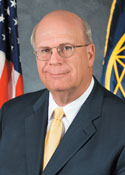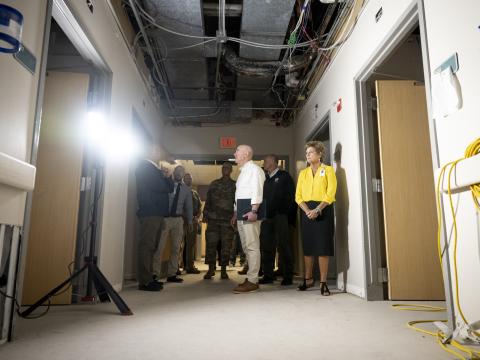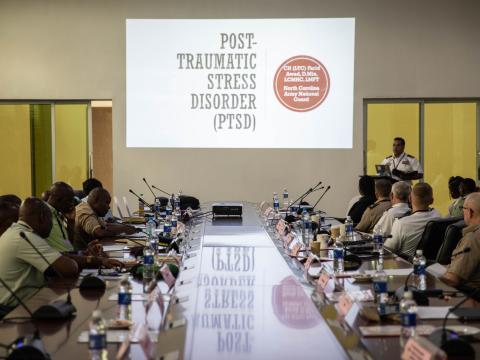Smart Defence
No, I did not misspell the title of this commentary. When I wrote these words, I was sitting in Sofia, Bulgaria, on a visit to a number of AFCEA’s Eastern European chapters. Earlier that same week, AFCEA Europe, in conjunction with the Czech Chapter, conducted a conference—TechNet Europe—on cybersecurity. One subject that came up repeatedly was “Smart Defence,” a NATO concept and policy that involves national burden-sharing on a broad range of developments, including information technology and cybersecurity. The European Union, also participating in the conference, has a parallel initiative called Pooling and Sharing, and it similarly is aimed at sharing the cost of critical infrastructure. All of this, of course, is driven by the need to modernize, coupled with the global economic crisis, which has reduced defense and security budgets dramatically. 
So, my question today is this: If NATO and the European Union can work across international boundaries to accomplish savings and pooled development, why can’t the U.S. armed forces and homeland security agencies accomplish that within a single nation? Or, for that matter, why can’t the United States, a member in good standing in NATO that, by the way, contributes well more than half of NATO’s budget, better leverage the Smart Defence initiative within NATO?
While the Defense Information Systems Agency (DISA) provides some consolidated resources for the Defense Department, the military services in many cases continue to pursue networks and systems on parallel paths. Similarly, when was the last time anyone remembers seeing enterprise sharing between the Defense Department and the Department of Homeland Security, let alone the other agencies in the homeland security establishment? I have not seen much. If anyone has, please drop me a line and let me know of any cross-enterprise consolidation or integration initiatives.
What is baffling to me is why we have not seen more progress in this area. After all, this is not rocket science. Networks and systems today largely are standards-based, commercial developments. The economic and information-sharing incentives are there. We cannot accomplish all that needs to be done with emerging budgets if government organizations continue to pursue solutions independently.
Granted, public law and the arcane programming and budgeting process that Congress has failed to reform sometimes get in the way. But these obstacles can be overcome if enough advance planning and coordination is done. One of the highest priorities at every level of government is interagency and coalition information sharing. Wouldn’t it be easier to share information if we were using common information systems? The Afghan Mission Network has shown the value of integration when common systems, policy and governance come together in a single environment.
Last year at the AFCEA TechNet Asia-Pacific Conference in Hawaii, Lt. Gen. William T. Lord, USAF, then the A-6/chief information officer of the U.S. Air Force, said that tightening budgets were forcing the Defense Department to do things at the enterprise level that we knew should have been done earlier but just were not achieved. Gen. Lord is right, and we need to stay focused on getting more of these things done.
None of this is an epiphany, and most of it is common sense. Yet, I have been reminded this week, as I watch our coalition partners in NATO deal with the profound economic challenges in Europe, that their issues are not very different from those in the United States. We need to act now, before we find ourselves in a position where budgets no longer will support the consolidation and modernization needed to create savings and enhanced information sharing.
I believe everyone—whether in government, industry or academia—needs to examine our programs and look for synergy. A lot of good work is being done in Europe that the United States should leverage. Similarly, progress being made throughout the U.S. government should be exploited on a broader basis. Everyone should work with Congress to find ways to work across funding boundaries. We should pursue Smart Defence—or, Smart Defense from the U.S. perspective—along with Smart Security. We just need to be smart about the application of resources to meet our requirements as effectively and efficiently as we can.



